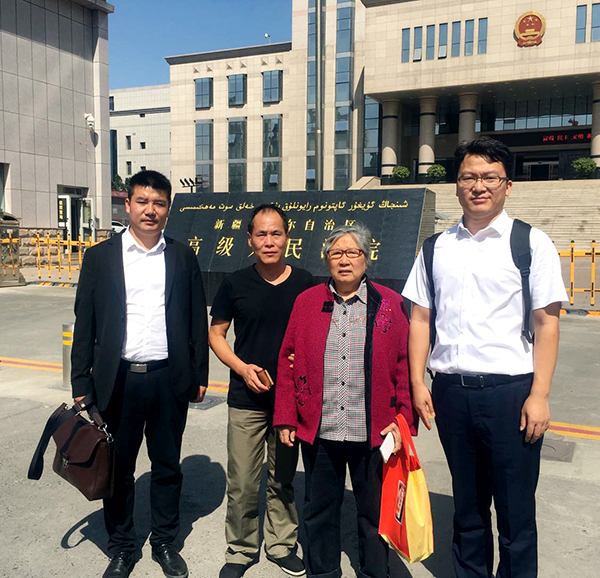Nation aims to undo, prevent, wrongful convictions
By Cui Jia and Cao Yin | China Daily | Updated: 2018-02-13 07:29

Retrial and release
Zhou was released from prison in May 2012 after the Xinjiang High People's Court dropped three charges brought against him in a retrial and reduced his sentence.
However, Zhou and his mother continued to appeal until November, when his conviction was quashed as a result of the "unclear and insufficient evidence" presented by the prosecution.
"I didn't cry when I was pronounced innocent because I knew I was innocent from the very beginning. I didn't even look the judge in the eye. I have been badly let down by the legal system," he said.
Wang Xing, one of Zhou's lawyers, said the appeal was a marathon, like most appeals in China.
For more than 20 years, Li Bizhen, Zhou's mother, devoted most of her time and energy to proclaiming her son's innocence and campaigning for his release.
"At the beginning, I didn't really know what a court was, but now I can speak in a loud voice and recite articles of law fluently. I did it all for my son," said Li, who is in her 70s. Her husband, Zhou's father, died while his son was in prison.
Although Zhou was released in 2012, he is still adjusting to life in the outside world. "I don't know how to communicate with people properly, and I am still trying to understand society," he said.
Lost and alone
Zhou's problems and confusion are not unusual for people in his situation.
"I was lost after I was released," said Chen Man, who spent nearly 23 years in prison after being wrongfully convicted of arson and homicide in November 1994. His case is China's longest instance of wrongful detention.
"I am in my 50s now. Friends and classmates of similar age have had families and children, and live harmoniously in my hometown. But I am still alone," he said.
In 1992, Chen was detained on charges of killing a man in Hainan province and destroying the evidence by setting a house on fire.
Although no physical evidence was presented at his trial, the Sichuan province native was sentenced to death with a two-year reprieve.
From that time on, Chen and his family constantly appealed against his conviction.
In February 2016, Chen's sentence was quashed and he was released from prison.
"I left the world for a long time, so it takes me more time to learn new things. I want to do something related to the internet, but I'm not optimistic about my life," he said.
"I want to succeed on my own, not by relying on others. My wrongful conviction stole so much of my time," the 55-year-old said.
Chen is relieved that his 85-year-old mother is in good health, but his father died just six months after he was released.
His New Year's resolution is to spend more time with his mother, and to find someone who can guide him in business and advise him how to start again.
Wang Wanqiong, Chen's lawyer, said many people who are released after being wrongfully detained are like children because they need care and have difficulty distinguishing right from wrong.
Unlike "real" prisoners who are eligible for educational grants or even help from civil affairs and judicial authorities upon release, people who are released after their convictions are overturned are not entitled to such support, Wang said.
"Many of these cases happened in the 1980s or '90s. In recent years, those who were wrongfully detained have felt as if they have been in a time-travel drama after being released into a new world. The experience makes them uncomfortable," she said.
"We shouldn't leave them alone without support. Instead, we should provide them with step-by-step assistance."
Chen is conducting some low-level business and has invested heavily in a cryptocurrency in a bid to become rich.
"I have urged him to give it up and find a stable job several times, but he ignores me. He was abandoned by our fast-developing society for more than 20 years, and I don't want him to be cheated", she said.
"He just doesn't want other people to look down on him, which I can understand."
























